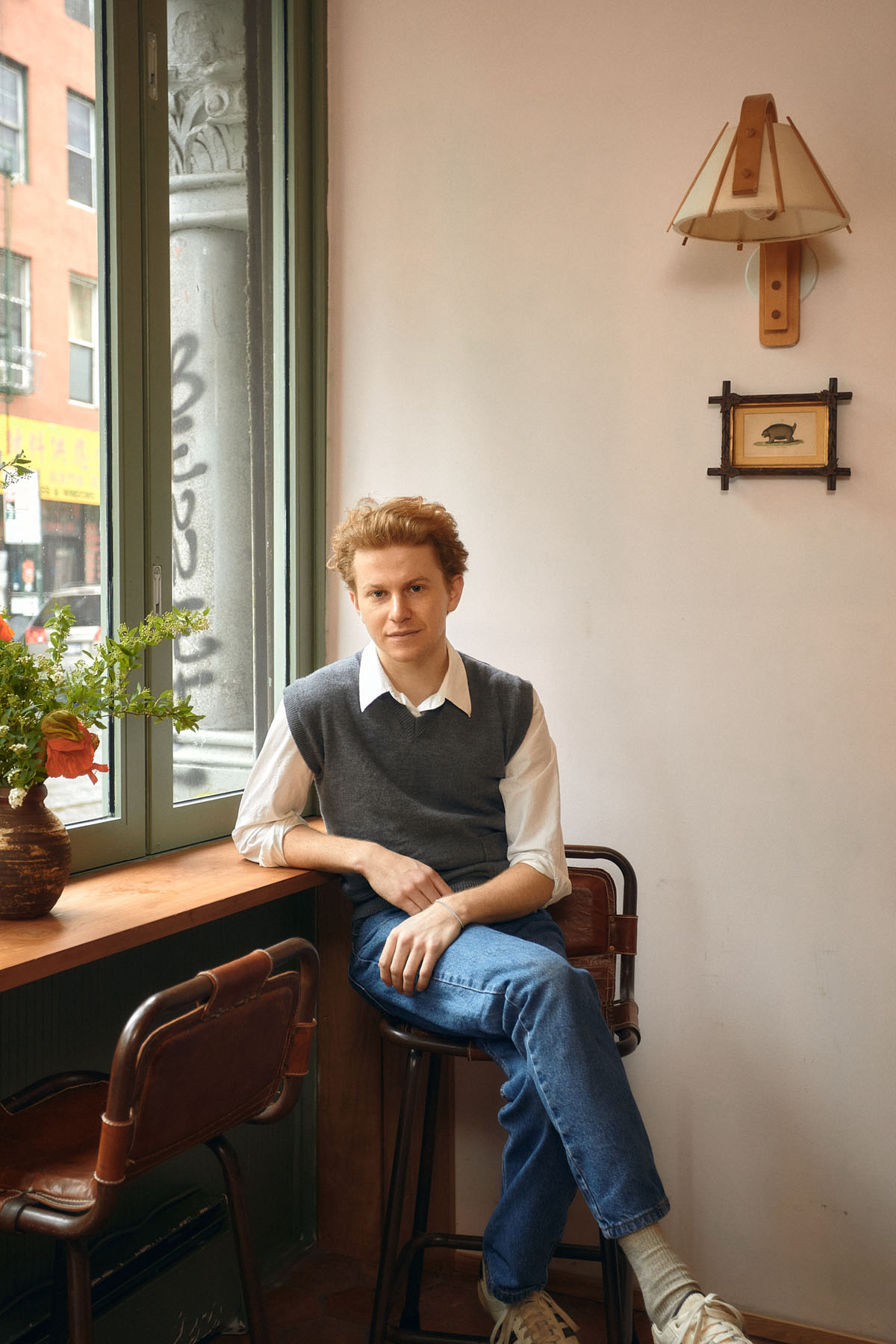
Eclectic pottery, wicker baskets, and other one-off antiques fill the intimate Lower Manhattan storefront that used to house Gem, a tasting menu-only spot run by Flynn McGarry in 2018. The young chef recently announced its closure, putting the tchotchkes up for sale to the downtown staple’s local fan base. “Come buy some antiques so I can go find more!!” McGarry prodded his nearly 200 thousand followers on Instagram. Attempts were made by a few to reserve fish-themed tableware through the social media app, while others raced onsite to snatch up rare bits of cutlery.
During the pandemic, experimentations in going à la carte and designated periods of reflection led the chef to the conclusion that he had outgrown the small outpost he opened at the age of 19. Now 25, McGarry is looking ahead to his future in the industry and adulthood, leaving behind the youthful pursuits of being a child prodigy and turning less than 30 covers a night.
This year, the Forsyth Street location will host a new interpretation of the wine bar McGarry opened in 2022 as a more accessible take on Gem‘s ethos. The latter will also benefit from a reimagining in the coming months: The new Gem will be bigger, and it’ll take into account the chef’s lessons learned about industry sustainability. As he makes the transition, McGarry took the time to fill CULTURED in on his new chapter.
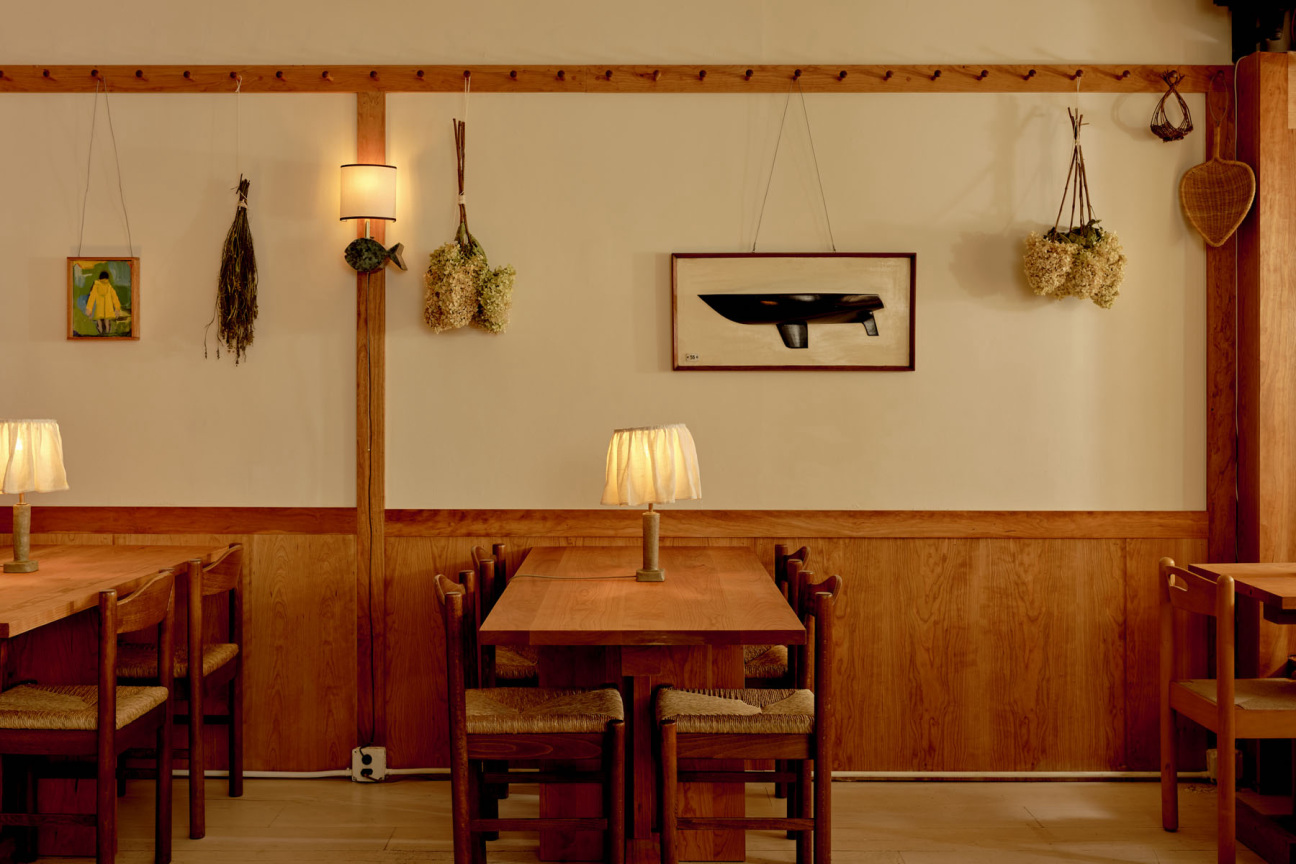
Being in a moment of transition, is that exciting or nerve-wracking for you?
I’m very good with change. A very important part of the creative process is understanding when you have to make a large shift to be able to push yourself further. We’d been in this space for almost eight years; it kind of felt like we had expanded beyond what we could do in the physical space and needed to find somewhere new to be able to continue the creation.
It definitely was like, Oh, this is kind of the first time in probably eight years where I have Saturday nights off. That’s been the strangest part for me: adjusting my lifestyle. What’s cool, and why I love the restaurant industry, is it’s a time where I’ve let our existing team that have been with us for a long time take a little bit more control—something that they needed to do to be able to grow. At the same time, I can also focus more on all of the other aspects of the restaurant: spending more time looking at it from a business perspective and a design perspective.
Are you equally excited to work on the business side of things, as opposed to being in the kitchen?
It started with really being like, I have to do this to be able to do all the fun stuff, and then I sort of found that there was some real creativity in that side too. I’m not gonna say I’m this restaurant business savant, because I’m not. I’m going, Okay, I want to make this work as well as possible so we can make the food that we want, pay our employees what we wanna pay them so they are happy and can stay and work with us, and we can pay our investors back. If I really want to put this on the menu, if I want to do this idea, then I need to do X, Y, and Z, and if it doesn’t work out at the end of the day, it doesn’t work out. It’s a very delicate balance.
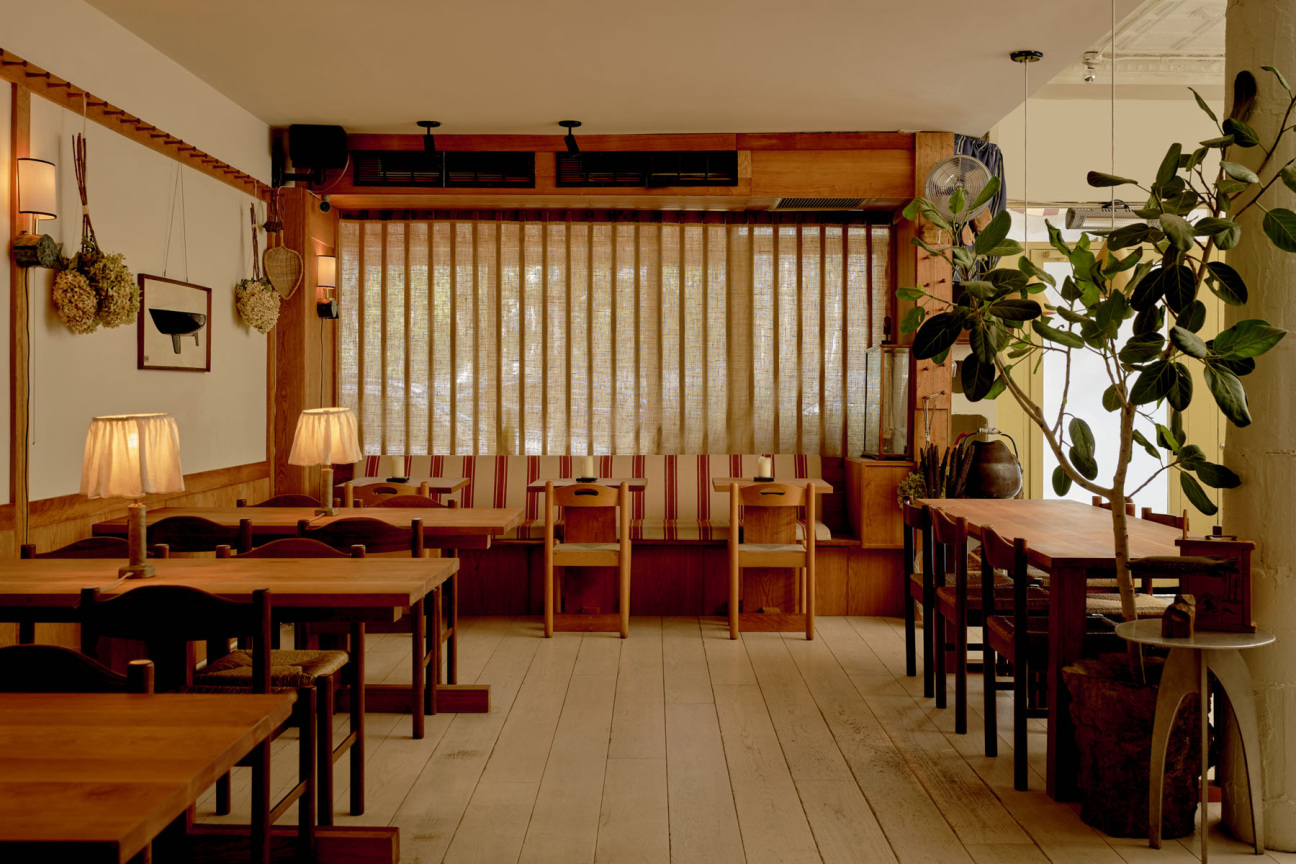
In a lot of the writing about you and about your career, the focus is often on how young you were when you began. Do you see this new chapter as a way to move beyond that?
If it were my choice, it would go away. The only thing I can continue to do is move forward and if that eventually gets dropped, so be it. But it’s not gonna get dropped until I keep going. It’s not the full intention, but I do think that having done more, opened more restaurants, having more accolades, makes the list a little bit longer where the first thing you put might not be “used to be a child.” That could maybe be the fourth thing on the list. Hopefully it’ll settle down as the restaurant industry also rapidly ages me.
You’ve talked quite a bit about cultivating sustainability in the industry. Do you think that’s something the new generation is really interested in implementing, or have you noticed the trend across restaurants and people of all ages?
When I started 12 years ago in kitchens, you’d go to a restaurant just because they’re making something amazing. You would never ask, “Do I get benefits? What’s my paid time off?” or anything that would strive for this idea of sustainability from a working standpoint. Sustainability from a food standpoint has started the conversation about work sustainability, and is incredibly important and will continue to grow. But I think where the restaurant industry is really focused right now is on this idea of sustainability from a life standpoint, not just a food standpoint.
The most interesting thing is we’ll have a cook come straight out of culinary school and they’re asking, “Do I get health care? What are my days off? I want three days off. I don’t wanna work more than 12 hours a day.” It’s a very difficult thing to be in an industry, being the manager, the person who’s employing people, the person who’s bringing them in, during a time of change. That’s where it is on us as the restaurateurs to be like, We are going to be sustainable; we want this to be a sustainable lifestyle.
But how do we afford that? How does that not diminish the quality of what we’re making? I think that’s something I haven’t seen talked about properly in the food industry, is this balance between quality of life and quality of product. Forever, it’s just been assumed: get rid of the quality of life and you have quality product. The people who have succeeded the most are able to find this balance where you need to take sacrifices on your quality of life at times, and there are certain aspects of the quality of the product that you have to take sacrifices on, and it’s yin and yang.
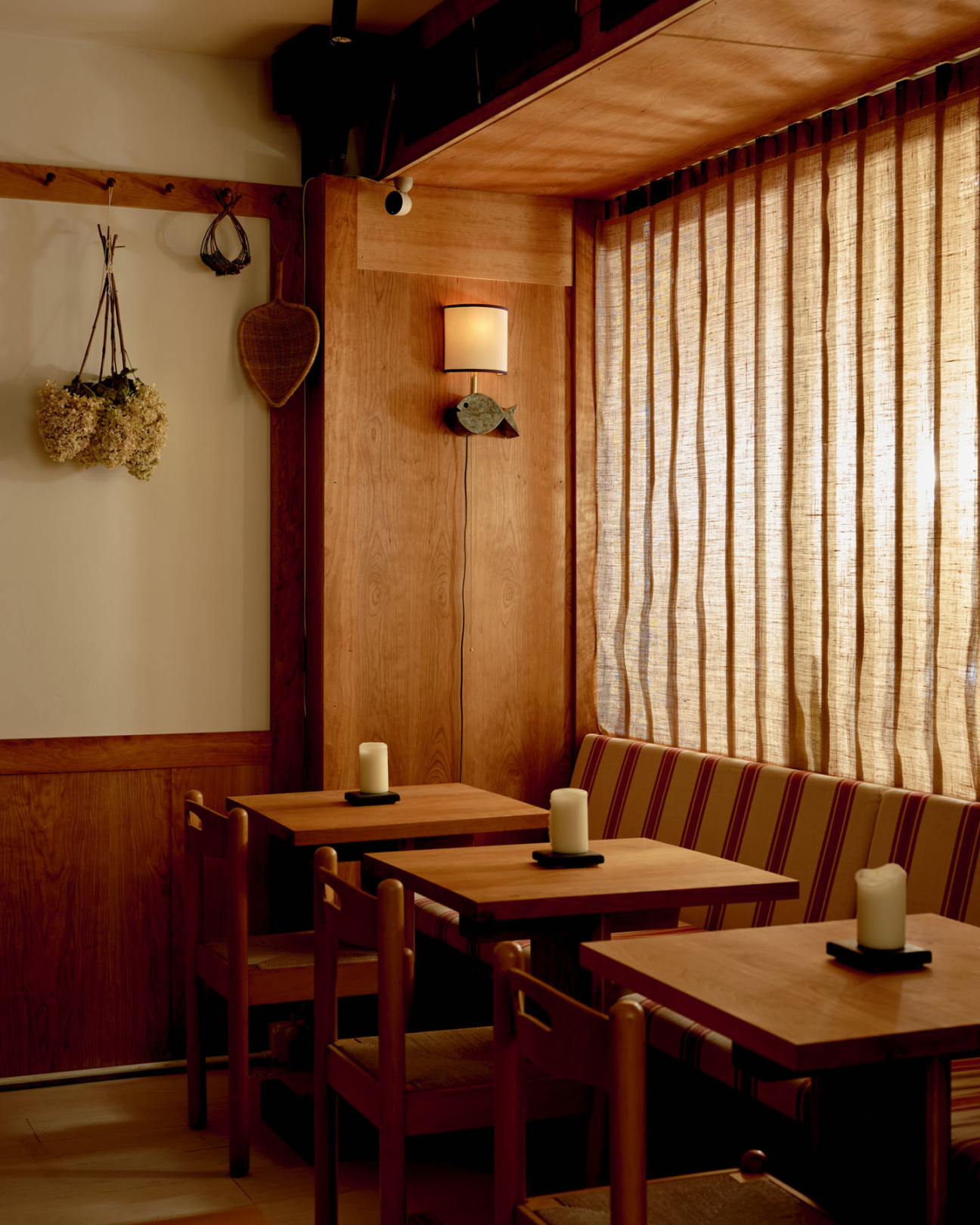
Is there a dish that represents where you’re at in your life right now?
Yes, we serve a lion’s mane schnitzel at the wine bar right now. We’ve been making these vegetable schnitzels for years now, and they always had many different things. Finally, I think [we’ve] achieved this idea of real simplicity where it’s just a mushroom that’s fried and it’s really delicious. It doesn’t have to have 100 sauces or anything, and actually people order that more than they do the meat option on the menu.
You’re hosting a dinner. Who do your first three invites go to?
My first three invites go to my girlfriend, Amanda—she’s a better host than me in a lot of ways while I’m stuck in the kitchen—and then the friend that’s gonna bring really good wine and the friend that’s gonna help with the dishes.
Do you have an ingredient that you think is underrated and one that you think is overrated?
Quince is underrated, famously. It’s kind of a cliché, but I think that certain truffles—I’m not even saying truffle oil—are very overrated and don’t really taste like anything.
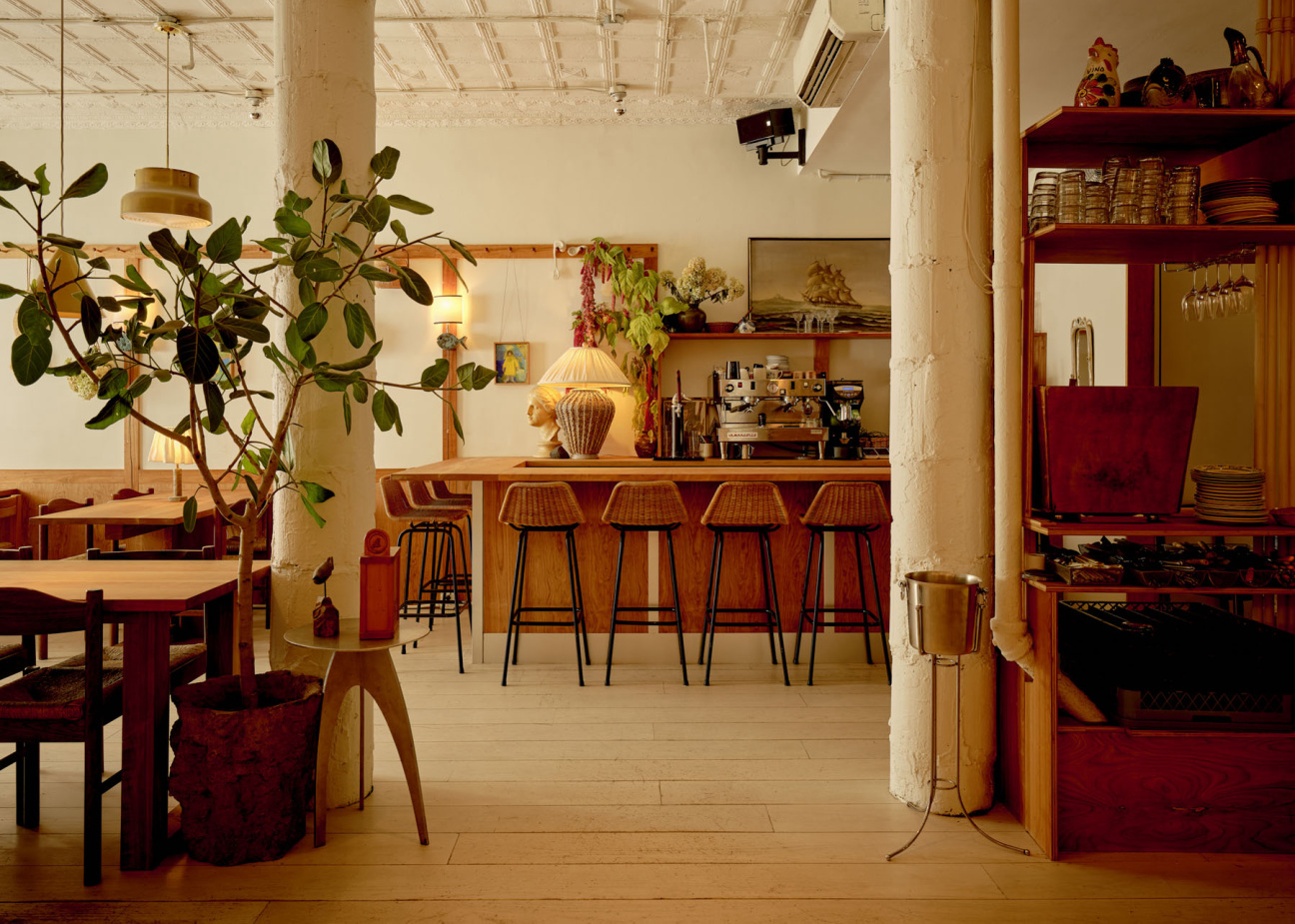
Do you have a song-food combo that you listen to a lot when you’re in the kitchen?
I listen to a lot of Wings. They’ve got long albums that you can … just put on and kinda let it go.
Do you have a go-to bodega order as a New Yorker?
If it’s in the morning, I get a bacon, egg, and swiss with a hash brown in it and hot sauce. If it’s at night, I get a turkey club with crispy bacon.
Do you have something in the kitchen that you think is really worth splurging on and something that you think is fine to save on?
A good blender is worth splurging on. And I honestly think you can get the restaurant supply stainless steel pans [affordably]. You don’t need a $400 pan to cook something nicely.
Is there a kitchen etiquette rule that you live by, that you think should be enforced?
Always leave your station cleaner than when you got there. That applies to both restaurant and at-home kitchens.
For more tips and opinionated takes from food experts, see our interviews with Molly Baz, Sohla El-Waylly, and Yewande Komolafe.

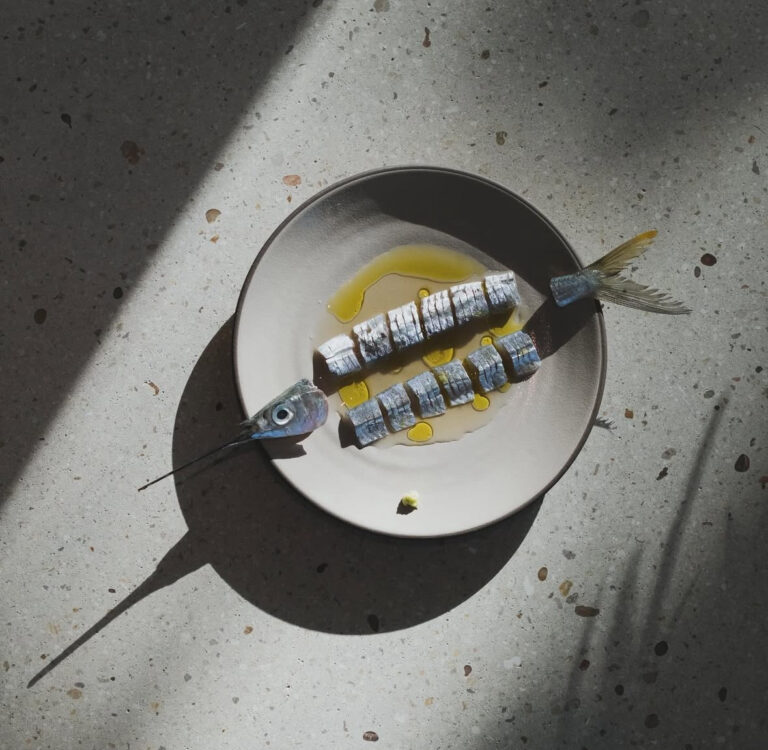
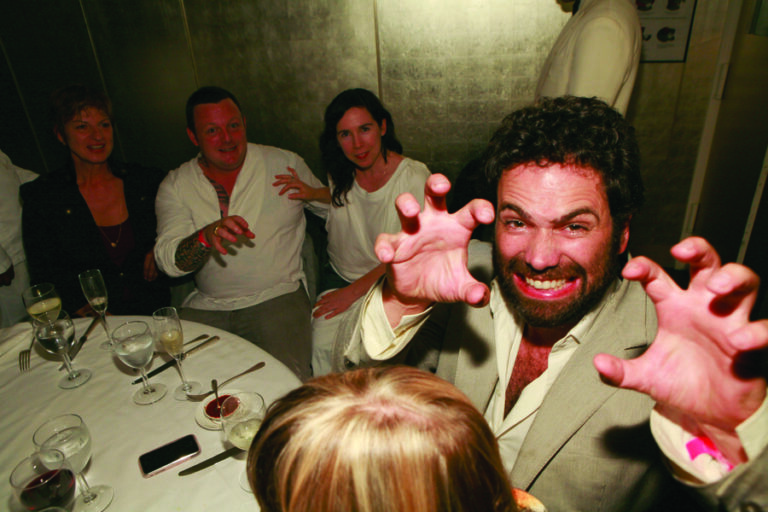

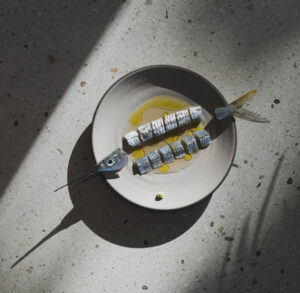
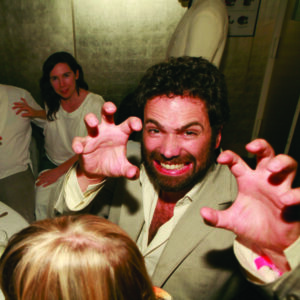
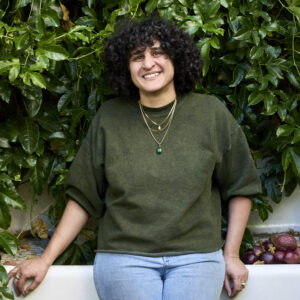



 in your life?
in your life?

